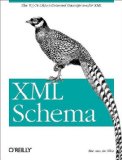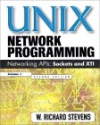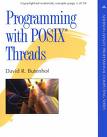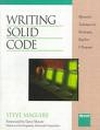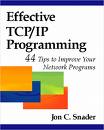Olivier Langlois's blog
Categories: Recommended books, C++, Code Optimization, Compiler, Fractal, Linux/UNIX, Multithreading, Rare out of print, Software security, TCP/IP, Windows programming
08/04/08
XML Schema - The W3C's Object-Oriented Descriptions for XML
I had to create a XML schema at my job for the very first time. This is something that I have never done before and I was a total neophyte on XML schemas. A coworker has lent me this book and I would say that after having been through the book in 2 days, it did its job. I have been able to complete my task and I have created a fairly complex XML schema. One quality that I appreciate in technical books is when the book is entertaining and interesting to read. I know that for the non initiated, technical and entertaining might seem incompatible but I have read such books. XML Schema does not have that quality. However, it has the quality to be extremely good to make its readers learn XML schema. If you need to learn XML schemas, you can read this book. It will not be fun but once you are done with it, you should have a pretty decent understanding on the topic.
Another aspect that I have noted is that on very rare circumstances, that book was lacking clarity in my opinion. There are few sections that I was really trying to understand what the author wanted to explain but after many readings of the same section, I did gave up on trying. The section named 'Asymmetry of these two methods' in chapter 7 is one example of what I am describing.
In conclusion, after weighting in the qualities and the problems of this book, I can recommend this book with confidence for anyone that must learn XML schemas.
07/06/08
UNIX Network Programming: Networking APIs: Sockets and XTI; Volume 1, Second edition
This is considered by many as the TCP/IP application programming bible and I am among them. This book is simply the most complete and detailed book on Socket programming. It describes every option under all their small details. This makes the book reading lengthy and tedious but it also makes it an excellent reference. Even experienced socket programmers will most likely learn something from this book. For myself, I got a better understanding of the listen() parameter purpose, a better understanding of socket lingering behavior and I refer the book from time to time to refresh my memory on topics such as how to time out a TCP connection attempt.
After having borrowed the second edition from someone at my work, I have decided to get myself a copy of the book. I have purchased the third edition. As of the time of writing this review the price for a used copy of the second edition is 6$ compared to 60$ for the third edition. Since I had the chance to compare the content of both editions, you might be interested to know that beside 1 bug fix in the sample code that I have noticed, the content of both edition is identical to 90% in my estimation. The changes are very minor. Some unimportant topics from the second edition such as XTI have been replaced by very specialized new topics. This means that, in my opinion, purchasing the older second edition which is still very accurate is a very good purchase.
10/25/07

Categories: Linux/UNIX, Linux/UNIX, Multithreading, Multithreading
Programming with POSIX Threads
In my opinion, this book is better than Pthreads Programming because it goes way beyond just presenting the pthreads API. One critic I had on all the other multithreading books that I have read is that they are not covering issues with multithread programs on a SMP system. This book is actually discussing some of these issues on several pages! Beside this quality, it also covers high-level design patterns on how you can use threads such as pipelines, work crew and client/server. There is also a chapter showing how to program with thread cancellation and a section explaining how to create new synchronization objects from the primitives.
This brings me to the only problem that I can think of this book: its age. It is not totally up to date. Learning how you can build new synchronization objects by itself is a very interesting exercise but the problem is that the new synchronization objects built are the barrier and the read/write lock which have been added to the pthreads API since the book publication. Also, except for a small section describing the futur of pthreads, the newest additions to the pthread API are not described.
10/08/07
Writing Solid Code
This book has been recently recommended to me by Amazon based on my previous purchase habits and I decided to go take a look at its description. At first, I was little bit skeptic about the value of a book published in 1993 and prepared with Word for Windows 2.0 because software programming has changed a lot since then! However, it was a very low risk purchase because of its very low price tag so I decided to give it a try and I have been pleasantly surprised!
This book is the proof that that there are few things in programming that are timeless. Errors of the past still occur today. The programming language used for the examples is C but what is taught is also applicable to C++ programming as well. Topics discussed in the book are: assertions, integrity checks, stepping through code with a debugger, how to not design interfaces that are error prone, avoid language features that are error prone and finally the author conclude his book by describing the attitude that a programmer should have. Among other things, a programmer should prioritize safe code before micro-optimizations. All these concepts are written in a style easy to understand filled with anecdotes that make this book a pleasant read.
To conclude, I have not been blown away by the content of this book but I have learn one thing or two and I am glad that I have read it especially with its very low price tag.
08/13/07
Effective TCP/IP Programming: 44 Tips to Improve Your Network Programs
Not all of the 44 tips are exceptional. Some of them are pretty trivial such as "Read Stevens books" or "consult RFCs" but about 35 tips are very good. The author knows well this topic and explains very well the reasons behind these tips. I am sure that all these good tips can be found in the TCP/IP Illustrated books but if you do not have the time to read 3 volumes consisting of about 2000 pages, this less than 300 pages book will provide a nice synthesis of TCP/IP programming good practices.
Olivier Langlois's blog
I want you to find in this blog informations about C++ programming that I had a hard time to find in the first place on the web.
| Sun | Mon | Tue | Wed | Thu | Fri | Sat |
|---|---|---|---|---|---|---|
| << < | > >> | |||||
| 1 | 2 | 3 | 4 | 5 | ||
| 6 | 7 | 8 | 9 | 10 | 11 | 12 |
| 13 | 14 | 15 | 16 | 17 | 18 | 19 |
| 20 | 21 | 22 | 23 | 24 | 25 | 26 |
| 27 | 28 | 29 | 30 | 31 | ||
Search

Categories
Olivier Langlois's blog
- AAC (2)
- Book reviews (12)
- C++ (24)
- Code Optimization (4)
- Compiler (3)
- Fractal (2)
- Linux/UNIX (3)
- Multithreading (3)
- Software security (7)
- TCP/IP (8)
- Web (1)
- Windows programming (19)
- C++ (28)
- tutorials (4)
- General (10)
- Hardware reviews (2)
- Linux (12)
- Recommended books (4)
- C++ (20)
- Code Optimization (2)
- Compiler (3)
- Fractal (2)
- Linux/UNIX (1)
- Multithreading (2)
- Rare out of print (3)
- Software security (5)
- TCP/IP (7)
- Windows programming (16)
- Software reviews (0)
- TCP/IP (8)
- Video games (4)
Archives
- January 2016 (1)
- September 2015 (1)
- July 2015 (1)
- June 2015 (1)
- May 2015 (1)
- December 2013 (3)
- September 2013 (1)
- May 2013 (8)
- April 2013 (1)
- December 2010 (1)
- August 2010 (1)
- June 2010 (1)
- More...
Misc
 XML Feeds
XML Feeds
What is RSS?
Who's Online?
- Guest Users: 3
 BOOKS i'm reading
BOOKS i'm reading



